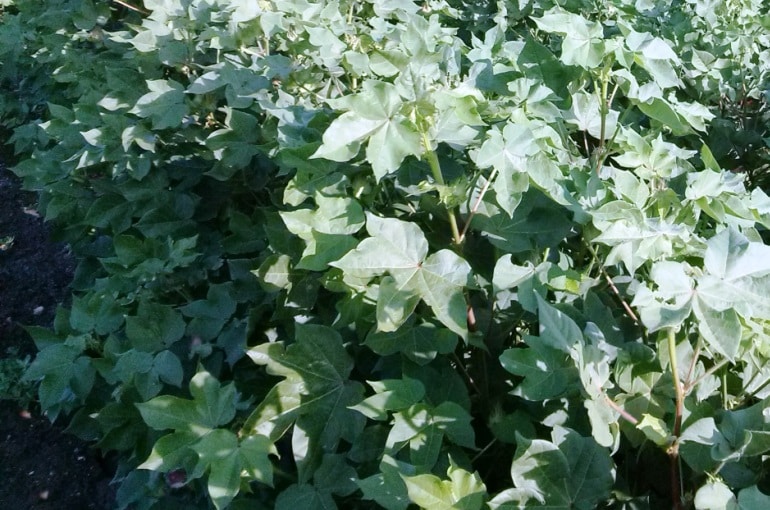Cotton Weed Control

This post is also available in:
This post is also available in:
![]() Español (Spanish)
Español (Spanish) ![]() Français (French)
Français (French) ![]() Deutsch (German)
Deutsch (German) ![]() Nederlands (Dutch)
Nederlands (Dutch) ![]() हिन्दी (Hindi)
हिन्दी (Hindi) ![]() العربية (Arabic)
العربية (Arabic) ![]() Türkçe (Turkish)
Türkçe (Turkish) ![]() 简体中文 (Chinese (Simplified))
简体中文 (Chinese (Simplified)) ![]() Русский (Russian)
Русский (Russian) ![]() Italiano (Italian)
Italiano (Italian) ![]() Ελληνικά (Greek)
Ελληνικά (Greek) ![]() Português (Portuguese (Brazil))
Português (Portuguese (Brazil)) ![]() 한국어 (Korean)
한국어 (Korean) ![]() polski (Polish)
polski (Polish)
Cotton Weed Management
Cotton plants are very sensitive to weeds, which compete aggressively with the plants in terms of water, sunlight and valuable nutrients. It is necessary for all farmers to have a sound weed control strategy, which may differ significantly between countries, climate zones, law framework, means of production etc. Especially during the first 60 days from sowing, even a very small number of weeds will have a negative effect on the plants’ growth and finally on the fiber production.
The first measures against weeds are taken with the first tillage, well before the sowing of seeds. Then, according to each field texture and the weeds most commonly found in each area, farmers often spray with various chemicals until the plants are well established (ask a licensed agronomist in your area). A very important step towards effective weed control is the frequent tillage of the area between the rows of the plants. This distance ranges from 2 to 4 feet and the farmer must be careful not to destroy any part of the cotton plant as he/she performs the tillage. Plowing the area between the planting rows not only destroys any newly developed weeds, but also increases aeration of the field. In areas where no contemporary broad spectrum herbicides are used, farmers often plow once or twice a month during active growth and make the last tillage after flowering (June-July in most areas of United States).
Many experienced farmers also sow wheat or barley immediately after harvesting cotton, so as to minimize weeds.
You can enrich this article by leaving a comment or photo of your cotton field weed control methods and techniques.
3.) Cotton Plant Growing Conditions
4.) Cotton Sowing – Seeding Rate – Number of Plants per Acre & Hectare
6.) Cotton Plant Fertilizer Requirements
9.) Cotton Weed Control
Do you have experience in Cotton cultivation? Please share your experience, methods and practices in the comments below. All the content you add will be soon reviewed by our agronomists. Once approved, it will be added to Wikifarmer.com and it will influence positively thousands of new and experienced farmers across the world.









































































